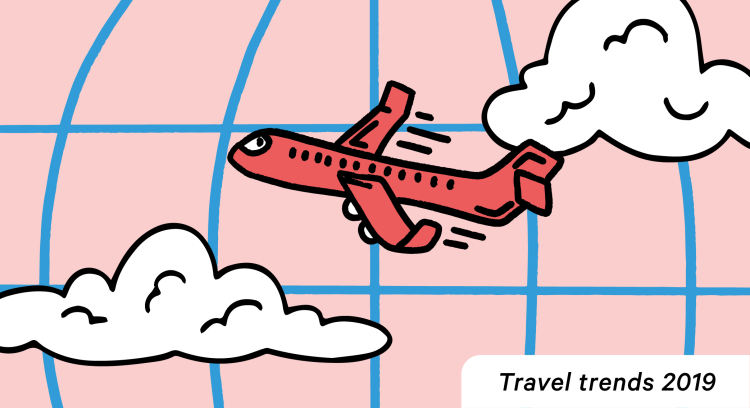Vying for the travel customer: 3 ways travel brands are driving direct booking
This is the first in a series of posts about strategies, behaviors, and market realities that are shaping the travel industry’s future.

In 1976, Travicom became the first ever global distribution system (GDS) that allowed bookings for multiple airlines in one place. Twenty years later, Expedia and Travelocity launched, ushering in decades of dominance for online travel agencies.
In the 21st century, research shows that online travel agencies hold 40 percent of the airline market and growing. While that may sound like a minority, it’s still a significant chunk to the airlines. For hotels, over 70 percent of rooms are booked via indirect channels. Airlines and hotels are now trying to gain ground in a dramatic shift toward booking through their direct channels. The push to own the travel customer’s wallet has begun.
The challenge is clear: With famously low profit margins—reportedly as tiny as one percent for air carriers—hotels and airlines are looking for any way to reduce distribution costs and encourage repeat transactions, upsells, and greater loyalty.
They believe the best way to do this is to engage with the customer from the beginning to the end of the travel experience. By owning customer data, for example, brands can entice customers with ancillary offers that produce higher profit margins than the core flight or hotel room. On the other side of the coin, cutting costs is just as important as upsells. If airlines and hotels can access customers without online travel agencies, they will be able to save money in commission fees.
Here are three specific ways airlines and hotels are trying to encourage booking direct.
1. Global distribution booking fees
IAG and Lufthansa have started charging a small fee to consumers who booked flights through an indirect channel. The objective is to encourage direct booking by ensuring that flights offered on their own channels are cheaper than elsewhere and hence appear higher up in search results. Now, when a consumer searches for a flight, the direct option often shows up cheaper than the indirect.
For example, if a customer searches “flight from San Francisco to Los Angeles” in a neutral search engine, the first result will be $90 on Airline A’s direct channel. The second would be $100 for the same flight and airline, but on an online travel agency’s website.
Price continues to be one of the most important factors when choosing an airline for consumers, and this small fee takes advantage of the trend. While IAG and Lufthansa have seen success with this model since implementing the policy 18 months ago, an extreme shift in the industry has not taken place. The travel industry is left questioning if consumer behavior is sensitive enough to a price increase to force travelers to book directly.
2. Direct booking-only perks

While airlines are working the stick approach with consumers, hotels are dangling the carrot. Only when booking directly do hotel guests receive certain rewards, including loyalty points. Hotels are also starting to offer member discounts to guests who book on their channels. Other perks, like free Wi-Fi and mobile check-in, are used to entice customers away from online travel agencies.
Hilton created a marketing campaign to focus on the advantages of booking through its specific digital channel. The ads highlight the superior user experience through branded digital apps and the better travel experience customers will receive with these perks.
A 2017 report from Kalibri Labs showed that these direct booking pushes resulted in 50 percent more rooms sold per month on average when compared to online travel agencies during the same period. A new Kalibri report has also demonstrated that direct hotel bookings created a strong sense of brand loyalty.
3. Restricting refund policies
Hotels have started putting restrictions on guests who reserve rooms through indirect channels while giving more flexibility to consumers who book directly. Marriott and Hilton changed their cancellation policies from 24 hours prior to check-in to the stricter 48 hours, and even in some cases 72 hours for indirect bookers. But for consumers who book directly, these policies are more relaxed, and they may also get fuller refunds than for consumers booking through online travel agencies or other indirect methods.
Direct booking was still an emerging trend in 2018. In 2019, this could all change, and we will be watching closely to see if it might be a paradigm shift in the travel industry. Modern consumers are very accustomed to online travel agencies, and it’s unclear if suppliers will actually be able to change those behaviors.




